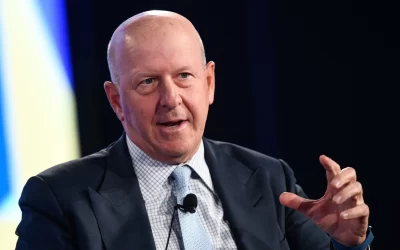Yes Bank’s plan to bring Carlyle and Advent on board as equity investors for about $1bn has gathered pace, following the proposed sale of the lender’s stressed assets to JC Flowers Asset Reconstruction Company and the constitution of a new board, said people in the know.
Carlyle’s top brass from Hong Kong along with Advent’s leadership have held a series of meetings this week with the senior management of Yes Bank and the State Bank of India (SBI), the largest shareholder of the private lender, as well as Reserve Bank of India (RBI) officials to fine-tune the contours of the plan, which will be undertaken in phases.
ET was the first to report on February 4 and March 4 about Advent and Carlyle being in discussions with Yes Bank for a potential $1 billion investment.
Advent and Carlyle declined to comment. Yes Bank and SBI didn’t respond to queries.
The proposed investment could be similar to Bain Capital’s investment in Axis Bank that saw the Boston-based private equity firm lead a consortium to invest $1.8 billion.
Deal Dynamics
To begin with, Yes Bank is expected to issue around 2.6 billion warrants and allot new shares to Carlyle and Advent via preferential allotment.
The two PE funds are looking to cumulatively invest Rs 3,600-3,900 crore (at Rs 14-15 per share) and end up owning 5% each of the expanded equity base. The warrants will get converted into shares in future based on a pre-agreed strike price and timeline, typically 18 months.
“The management believes the stock is undervalued but for investors, the current share price or a 52-week price average are the best benchmarks,” said one of them.
Bank has Got Informal RBI Nod
“In the last one year, from a high of Rs 16.25 per share, it has seen a 55% drop to Rs 10.51 per share.”
Yes Bank ended up 5% at Rs 14.29 on Thursday for a market capitalisation of Rs 35,803.57 crore on the BSE.
Yes Bank can issue a maximum of 3.8 billion shares as warrants, so that SBI’s stake is at 26%. As per the regulator-approved revival scheme, SBI’s stake in the bank cannot fall below 26% before March 2023. As of now, SBI’s stake is 30%, and the issuance of 3.8 billion shares will dilute the stake to 26%.
If the warrants are issued on a preferential basis, then as per the rules, last six months’ average price becomes the floor of the strike price for the warrant.
The transaction is expected to take place once the deal with JC Flowers concludes and shareholder approval for the new board members comes through, expected by September at the latest.
After April 2023, the bank will issue another tranche of new shares as per the proposal, less than the first tranche to both investors. Under the Banking Regulation Act, an investor can acquire up to 5% stake in any bank without RBI approval.
Get the week’s top news delivered directly to your inbox – Sign up for our newsletter
However, Yes Bank management has received informal approval from the regulator regarding new investors, said some of the people cited above. Once the transaction concludes by the end of this fiscal year, the two new investors will also get a board seat each. At Thursday’s exchange rate, since the bank is aiming to raise Rs 8,000 crore ($1 billion) or even Rs 10,000 crore as it had envisaged before, then each of the investors may end up owning anything 5%-9.9% each of the bank’s expanded equity. But that discussion is still ongoing, added sources involved directly.
Even though discussions began at the start of the calendar year, the reconstitution of the board was a precursor for the new investors to step in. It signals that the private lender is ready for a makeover, given that the earlier restriction imposed under the reconstruction process was removed.
RBI announced early last month that Yes Bank would exit the reconstruction scheme, following which a new board will be formed. This is almost eight months ahead of the revival plan’s three-year timeframe. For shareholders, though, the embargo on trading may not be lifted until March 2023.
Secondly, the sale of the Rs 48,000 crore, non-performing asset (NPA) portfolio further gave confidence to the street and the incoming PE investors.
“We plan to take our CET1 (common equity tier 1) ratio above 14% from the present 11.5%,” Yes Bank managing director Prashant Kumar said recently. “A much cleaner balance sheet will also get us a better valuation.”
Gross NPAs are also set to shrink from 13.9% in FY22 to 1.5-2% when the sale of bad loans to the asset reconstruction company (ARC) concludes. Having returned to net profit in FY22 (Rs 1,044 crore) after two years of heavy losses and its balance sheet cleaned up, Yes Bank has been a turnaround story thus far.
Long-drawn Battle
Since March 2020, Yes Bank has raised Rs 25,000 crore–including Rs 10,000 crore when SBI and a clutch of private banks invested to keep the bank afloat, and a follow-on public issue of Rs 15,000 crore. Its board had on January 21, 2021, approved a proposal to raise Rs 10,000 crore through various modes, including qualified institutional placements (QIPs) and foreign currency convertible bonds (FCCBs). However, the bank was not successful in attracting investors.
That approval was to lapse on February 22, 2022. In late December, the board approved an extension of the earlier proposal to raise capital in the form of equity, bond, warrants or any other equity-linked security.
Advent, like Blackstone and Brookfield, was among a handful of private equity investors that had explored buying into the bank before SBI came to its rescue.
Source: Economic Times
Can’t stop reading? Read more
KKR and Apollo drive $6.4bn surge in private equity investment into Asian schools
KKR and Apollo drive $6.4bn surge in private equity investment into Asian schools Private equity...
Goldman buys into T Rowe Price with $1bn stake as retail private equity opens up
Goldman buys into T Rowe Price with $1bn stake as retail private equity opens up Goldman Sachs has...
Permira invests in RightShip to accelerate digital transformation in maritime safety
1789 Capital seeks $1bn for South Florida real estate push with Trump Jr. on board 1789 Capital is...




